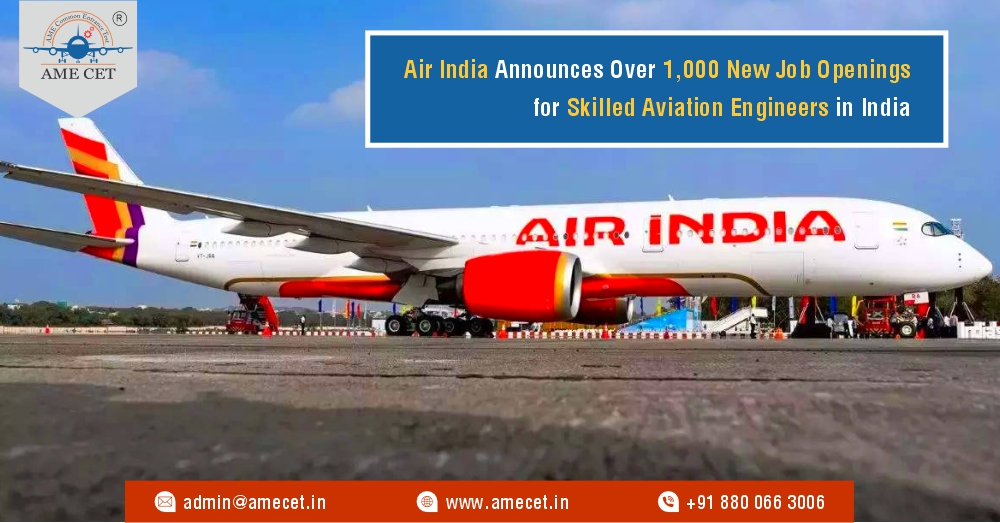
In a major development for India’s aviation sector, Air India has announced the creation of more than 1,000 new positions for skilled aviation engineers. This strategic move reflects the airline's ambitious expansion plans and its commitment to bolstering its technical workforce as it ramps up operations.
Expansion and Modernization
During a recent press conference in New Delhi, Air India’s top executives revealed that the recruitment drive is part of a broader strategy to support the airline’s fleet modernization and expansion. With a growing network of domestic and international routes and a significant increase in aircraft acquisitions, Air India is poised to address the rising demand for technical expertise in aircraft maintenance and engineering.
The new roles will encompass a range of engineering disciplines, including aircraft maintenance engineers, avionics specialists, and propulsion experts. This recruitment push is designed to enhance the airline's capability to maintain its expanding fleet and ensure optimal performance and safety standards.
Addressing the Skills Gap
The announcement comes at a crucial time for the Indian aviation industry, which has been facing a significant skills shortage. As the sector experiences rapid growth, the demand for qualified engineers has outpaced supply. Air India’s move to create over 1,000 new jobs aims to address this gap and support the industry's broader development goals.
Candidates for these positions will undergo a thorough selection process, followed by comprehensive training programs designed to equip them with the necessary skills to meet Air India’s high standards. The initiative is expected to not only provide job opportunities but also foster a new generation of skilled professionals in the aviation field.
Economic and Industry Impact
The creation of over 1,000 jobs represents a substantial economic boost and aligns with government efforts to promote employment and skill development in key sectors. By investing in its workforce, Air India is not only enhancing its operational capabilities but also contributing to the growth of ancillary industries, including training institutions and supply chains.
This move underscores Air India’s confidence in its future growth and its commitment to maintaining a competitive edge in the global aviation market. The airline’s investment in human capital is expected to drive innovation and improve service quality, further solidifying its position as a leading player in the industry.
Looking Ahead
Air India’s announcement is a clear indication of its strategic vision for the future. As the airline continues to expand its footprint and modernize its operations, the addition of over 1,000 new engineering positions will play a crucial role in supporting its long-term objectives.
For aspiring aviation engineers, this represents a significant opportunity to join a leading global airline and contribute to its success. The recruitment drive is expected to attract top talent from across the country, reinforcing Air India’s commitment to excellence and setting a new benchmark for the industry.
As Air India moves forward with its expansion plans, the focus on enhancing its technical workforce will be pivotal in navigating the complexities of modern aviation and meeting the evolving needs of its customers. The creation of these new jobs is not only a milestone for the airline but also a testament to the dynamic growth of India’s aviation sector
Category
-
Aircraft Maintenance Engineering (DGCA) (62)
-
(268)
-
Cabin Crew (1)
-
Aerospace Engineering (3)
-
Aeronautical Engineering (2)
-
Airport Management (5)
-
Aircraft Maintenance Engineering (EASA) (6)
-
Airport Ground Staff (1)
-
Commercial Pilot License(CPL) (51)
-
Aircraft Maintenance Engineering (BTech/BE) (1)
-
B.Sc. in Aviation (1)
-
AME CET (5)
